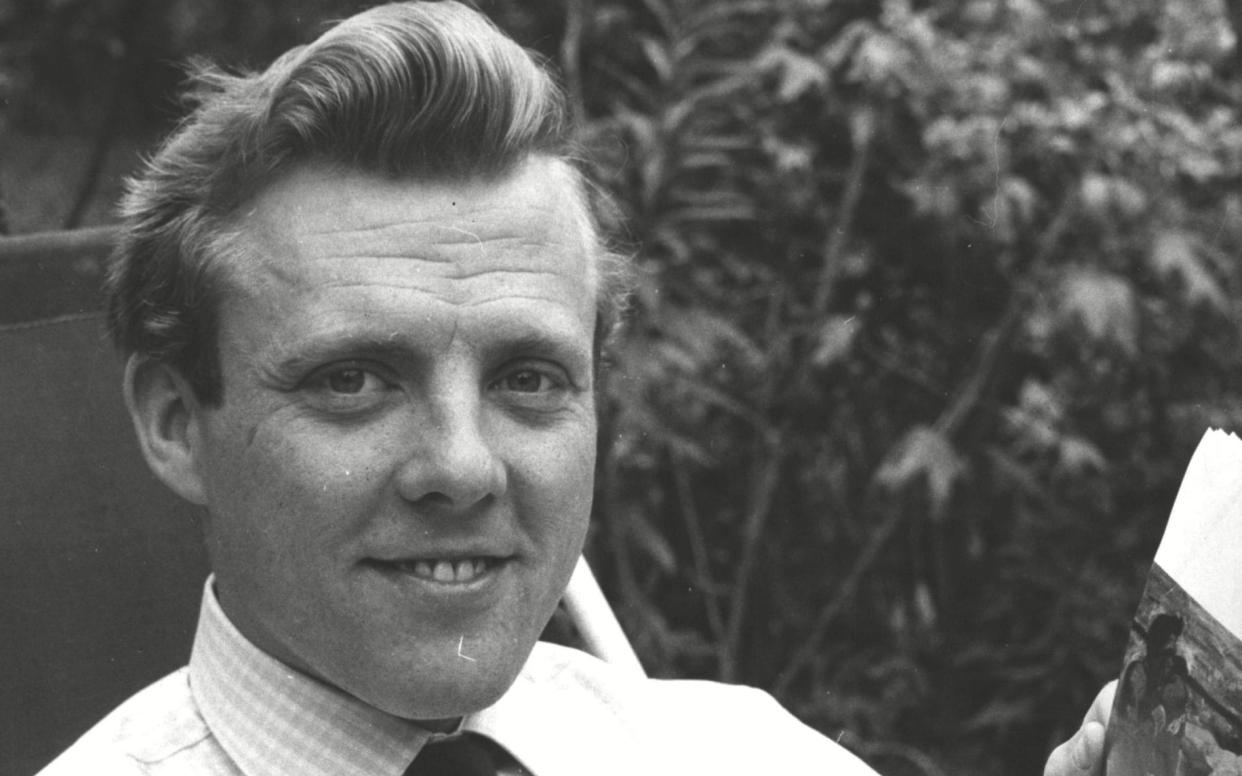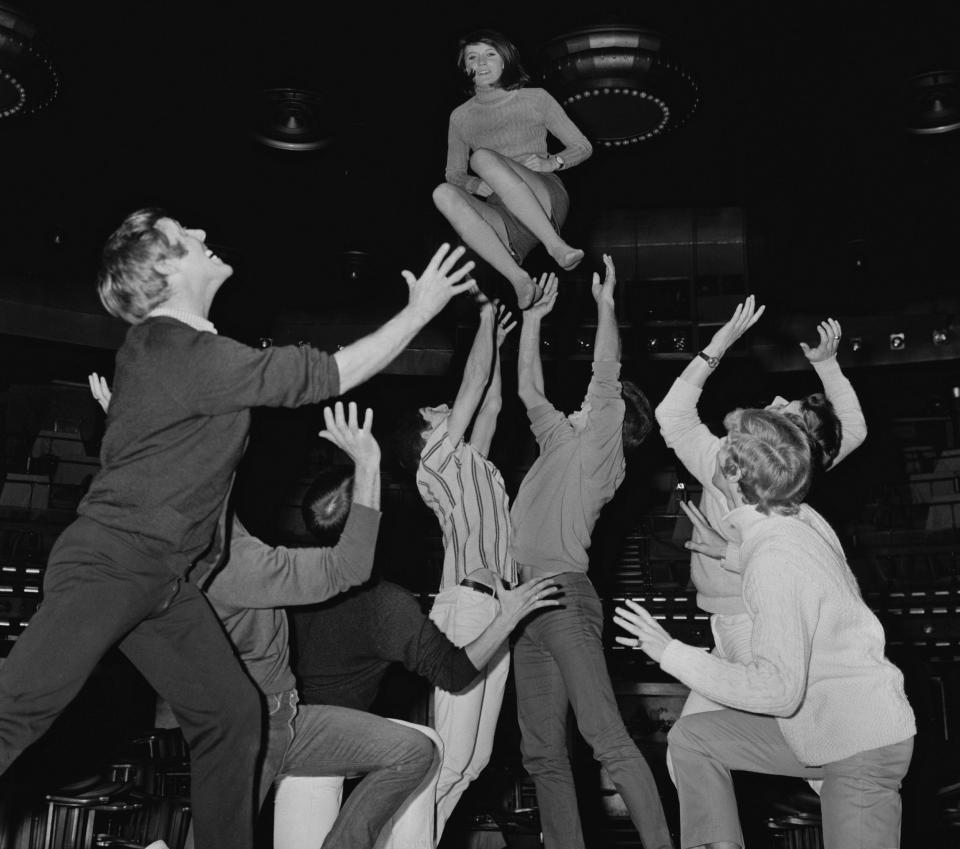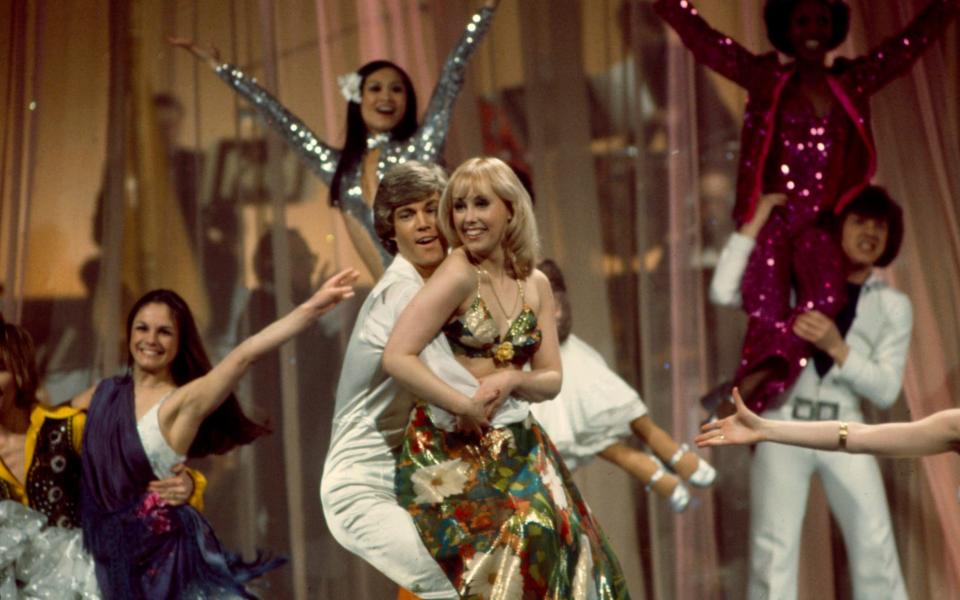Dougie Squires, choreographer whose dance troupes became fixtures of TV light entertainment – obituary

Dougie Squires, who has died aged 91, was a choreographer whose dancers high-kicked – and sometimes sang – their way across British television studios from the 1950s to the late 1970s.
Squire’s troupes, first the Dougie Squires Dancers, followed by the Young Generation, then the Second Generation, combined contemporary popular dance with traditional ballet and musical-theatre moves to create a young style that brought new audiences to television variety shows. “TV was a new creative medium and we had to invent a style, addressing the camera to establish a relationship with the audience,” Squires told The Guardian in 2016.
Squires would studiously observe current fashions and dance trends to maintain the freshness of his troupe. “I am always trying to make the action belong to the now,” he told Radio Times in 1968.
His best known outfit, the Young Generation, a dancing and singing group created specifically for BBC Television, was one of the first onscreen dancing troupes to feature both boys and girls – 15 of each – and one of the first to perform in fashions straight off the Kings Road or Carnaby Street, the girls often clad in miniskirts or hot pants.

The Young Generation made their debut on The Rolf Harris Show in 1967 and went on to appear in many other BBC productions, including BBC Two’s International Cabaret and Show Of The Week. In 1969, they appeared simultaneously in Val Doonican’s Christmas Night With The Stars on BBC One and in their own “special”, Jesus (“The story of His life through the eyes of the young generation featuring The Young Generation”), on BBC Two.
In 1970 they were given their own BBC Two series, while continuing to appear on “specials” on BBC One such as The Young Generation Meet Lulu and The Young Generation Meet Shirley Bassey.
The troupe continued to perform on shows hosted by Rolf Harris into the 1970s and Squires became a great friend of the entertainer, with whom he supported many charities over 25 years. During Harris’s 2014 trial on multiple charges of indecent assault, Squires was one of several character witnesses who testified in his defence.
Harris, he claimed, had been “very popular” with the Young Generation dancers, including girls aged between 16 to 28, who regarded him as a “father figure”. Despite the dancers walking around in bras and G-strings backstage, Harris never behaved inappropriately or showed any “voyeuristic intent”.
When Harris was found guilty of 12 counts of indecent assault against four girls and young women over an 18-year period, Squires spoke to a local paper about his shock: “I never knew. Not once did I have any suspicions... The picture they painted in court wasn’t the Rolf I knew. I’m still struggling to believe it even now because there is always gossip in rehearsal rooms, yet there was never any about Rolf. Not a word.”
Douglas William Squires was born in Long Eaton, Derbyshire, on February 16 1932. He started his working life as an accountant until, aged 20, he moved to London to study acting and dance. His career began in repertory theatre and during the 1950s he became a well-known singer and dancer on television, appearing on such shows as ITV’s Chelsea at Nine and the BBC’s On the Bright Side, starring Stanley Baxter.
But he decided to concentrate on choreography, forming the Dougie Squires Dancers, a troupe which included the teenaged Una Stubbs, who would become better known as an actress in such series as Till Death Us Do Part and Sherlock.
From 1956 to 1961 the group appeared in the ITV show Cool for Cats, a weekly 15-minute pop show on which the presenter Kent Walton would play records and review them, while the dancers interpreted some of the songs in movement and Tony Hart doodled cartoons to illustrate the songs.

In the early 1970s Squires founded the Second Generation, a freelance troupe which broke new ground in being not only mixed-sex but also multi-ethnic. “Mine was the first integrated group on TV and that caused quite a bit of trouble at the time,” he recalled.
The troupe regularly appeared on The Two Ronnies and Morecambe and Wise, and had a short-lived series on ITV called 2Gs and the Pop People that ran for six episodes in 1972 and featured Slade, Sandie Shaw, the Bee Gees and Lulu. They also appeared in 1974 on Sunday Night At The London Palladium on ITV.
Squires directed and choreographed musicals around the world, was involved with numerous fund-raising events and became a sought-after director on the Christmas panto circuit.
He was a great favourite with Royal family members, directing some 20 Royal Command performances and the annual Horse of the Year show at Windsor. His dancers performed at royal occasions including Queen Elizabeth’s 1977 Silver Jubilee celebrations as well as her 90th-birthday celebrations at Windsor Castle.
In 2000 Squires directed a cast of 6,000 dancers and entertainers for a huge pageant in Pall Mall to mark the Queen Mother’s 100th birthday.
In the 1970s Squires and his dancers worked on television with Vera Lynn and in 2017 he directed an all-star gala at the London Palladium to celebrate her 100th birthday, a show choreographed by his long-term partner Antony Johns.
Squires recalled asking the singer, who famously admitted that she had never learnt to read music, how she managed: “Oh,” she replied, “I just look at the dots. When the dots go up, I go up. When the dots go down, I go down.”
Squires was appointed OBE in 2009 and MVO in 2017 for services to choreography and stage direction of royal pageants.
Dougie Squires, born February 16 1932, died May 22 2023
